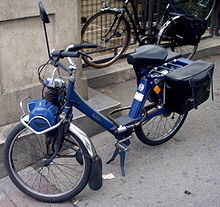This is all the personal items the friars carried with them.
They were allowed to ride horses or mules but often used them to carry the religious artifacts they took with them. It is reported that, except for the time he spent on board ships, Father Serra limped everywhere he went in Old Mexico as well as the Californias.
We now move on to my second character, the Indian boy.
The first thing I had to do was decide who he was and where he came from. I found a number of tribes in 18th Century western Mexico – and all of them were hostile to the Spanish. I sifted through a lot, especially about places in Mexico where Father Serra and his friars might contact him. I found a tribe called the Cahita who lived not very far from the town of Culiacán where the Spanish had been for more than a century. It was not that important to the Spanish as their silver mines were much further to the north.
Search, search, and research.
The Cahita, never a large tribe, had been decimated by European diseases so I decided to create my Indian as a member of their tribe. So, how would he come in contact with the Spanish. It was the time when Franciscans were moving in to replace Jesuits. I simply came up with two friars traveling through the area who find the boy and take him in. They first of all give him a new name. Cuauhtémoc or Fallen Eagle in Nahuatl was certainly not appropriate so I came up with the name Jaimenacho for Saint James and Saint Ignatius. He has a facility for carving beautiful figures out of wood, so the friars put him under the tutelage of the mission's carpenter. Hence his new name of Jaime the carpenter.
Well, I now had him in the hands of the Spanish. How to get him to where he can meet Timothy, the sailor?
Search, search and research.
I couldn't find a Nahuatl dictionary but discovered it was related to Yaqui, which did have a dictionary. So, when it came to having him speak his native tongue, that's what I used.
So, how did the friars treat the Indians? I discovered that, unlike what I'd heard in school and read in news accounts, the friars looked upon the Indians as children and felt as responsible for them as if they were their own children – which in a sense they were. How about the reputed beatings? Again, I discovered that European standards of treating children came from the saying, “Spare the rod, spoil the child.” Discipline in the 18th century was, by today's standards, often inhumane. The friars actually disciplines themselves for what they saw as their sins and failings by publicly lashing their backs with chains or leather whips studded with sharp blades. They would also use a rock to pound on their chests to get their points across to their flocks.
The Indians? Unlike what the military did, the friars held to a belief that, as children, it was wise to keep punishment to what we would call spanking. No blood. No bruises. The worst punishment to an Indian male would be to be chastised in front of the others.
We've now reached the point where the two youths meet. Both have already encountered major cultural shocks and changes. So, when they meet, they bond and become like brothers. But, what would their lives be like? Where and how did they live?
Here's another point to the story – when I started, beside Fathers Serra, Crespí, and Palóu, I made up all the rest because I couldn't find anything more detailed online. That is until I received a book from the Franciscans of Santa Barbara detailing how the friars interacted with the California Indians. So, back to the drawing board to do a whole lot of revisions. But, what really stopped me in my tracks was finding a book I'd seen references to but had never actually looked at, History of the Pacific states of North America (volume 13) by Hubert Bancroft written in 1887. Phew, what a task that was! But, it not only contained the names and some history for every friar who served in the Californias up until 1835, it did the same for all military and civilians who were there during the same period. It also gave a detailed account of the Spanish government's interactions during this period.
I probably spent more than two months adding important dates, actions, and people. I learned things about the Spanish governors and officers missing from all the other sources I could find. All of that had to be incorporated into the already-written two novels but the third as well.
Edit. Revise. And edit.
I can see why, in the “old days” writers kept notes posted and filed all over the place. Now, how to arrange a useful filing system on my computer so I could find things when I needed them? [I still don't think it's complete or easy or fully helpful.]
So, the latest revision of book one is at the publisher. I know, without a doubt, that it will undergo some more revisions but the worst is over. I've done a whole lot of search, search and research so anyone who reads it will know what REALLY went on more than three centuries ago that created the Californias we know today. [I'll keep my own personal views of today's California out of this post.]
Do any of you have your own systems for ensuring accurate background to your novels?Share them with us, please.
Until next post, probably a bit more about my tour of duty in France.





